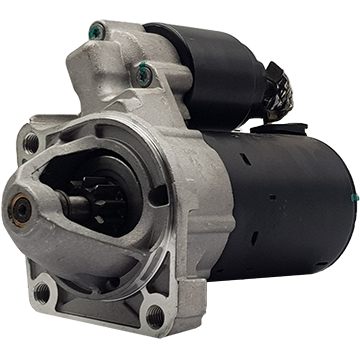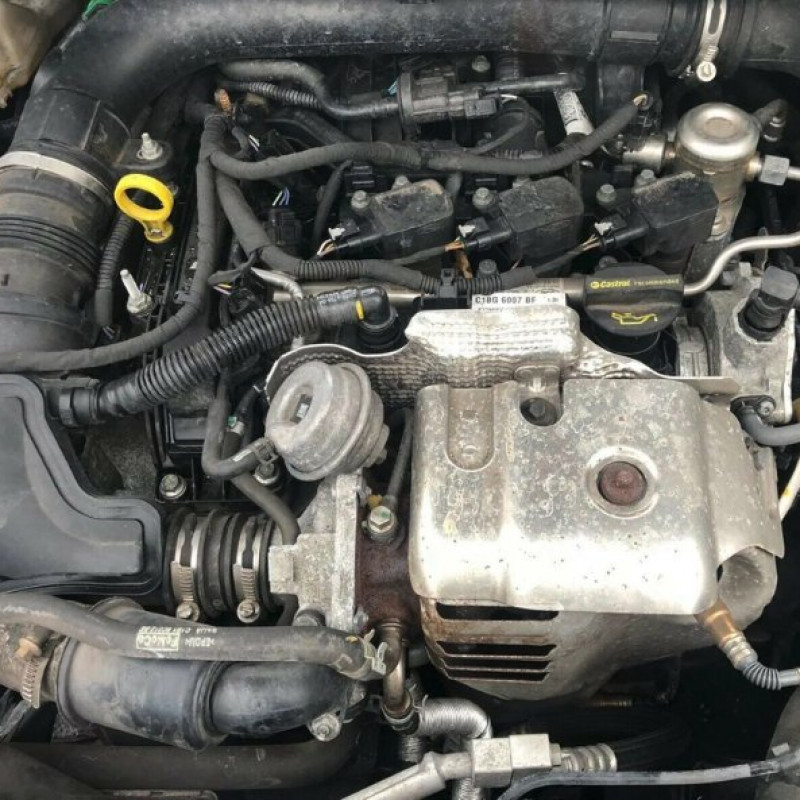The Future of Engines: Innovations Driving Lasting Power Solutions
As the auto sector navigates the imperative shift in the direction of sustainability, the future of engines is progressively defined by groundbreaking advancements. Electric engine advancements, together with promising developments in hydrogen gas cells and biofuels, are improving the landscape of power services. The appearance of hybrid systems further complicates this development, offering both opportunities and difficulties to decrease discharges properly. Combined with the assimilation of artificial knowledge in engine layout, these technological strides elevate crucial concerns concerning their long-term stability and effect on traditional paradigms. What might this suggest for the industry and consumers alike?
Electric Engine Advancement
The advancement of electrical engine growths represents an essential shift in the vehicle and aerospace sectors, driven by the urgent demand for lasting choices to fossil gas. This transition is defined by considerable developments in battery innovation, power electronics, and electric motor design, which collectively enhance the performance and efficiency of electrical engines.
Current advancements have actually resulted in the development of lighter, a lot more energy-dense batteries, such as lithium-silicon and solid-state batteries, which guarantee longer ranges and shorter billing times. Furthermore, improvements in electric motor performance, such as using long-term magnets and progressed cooling systems, enable electrical engines to operate successfully under differing conditions. These improvements not just improve car performance yet likewise contribute to a decrease in general energy consumption.
In addition, the combination of advanced software formulas has maximized power administration in electric lorries, enabling for regenerative braking and anticipating charging techniques. As suppliers progressively embrace electrical propulsion, the auto and aerospace industries are observing a paradigm shift in the direction of greener modern technologies. This evolution not just satisfies governing needs however additionally aligns with consumer choices for environmentally friendly transport solutions, strengthening electric engines as a foundation of future lasting movement.
Improvements in Biofuels
As the automobile and aerospace industries progressively prioritize sustainable energy resources, developments in biofuels become a corresponding solution to electrical engines. Biofuels, obtained from natural materials such as crops, waste, and algae, provide an ingenious method for decreasing greenhouse gas exhausts and dependence on nonrenewable fuel sources.
Current research has concentrated on boosting the effectiveness and sustainability of biofuel manufacturing. Second-generation biofuels utilize non-food feedstocks, reducing competition with food supply and minimizing ecological effect. In addition, innovations in artificial biology have actually made it possible for the engineering of microorganisms to create biofuels a lot more effectively, causing greater returns and reduced manufacturing prices.
In addition, the growth of drop-in biofuels allows for seamless integration into existing infrastructure, enabling a smoother transition for markets typically dependent on fossil fuels. ford fiesta engine. These fuels can be used in current engines without modifications, facilitating their fostering throughout different fields
Investments in biofuel modern technology, together with helpful policies, are necessary to drive advancement and scalability. As the worldwide community looks for to deal with climate change, biofuels supply a practical, instant solution that straightens with the overarching objective of sustainability in transportation and aviation.
Hydrogen Gas Cell Innovation
A growing number of scientists and business are checking out hydrogen fuel cell modern technology as a sensible option to conventional source of power in transportation and power systems. This modern technology converts chemical power from hydrogen right into electrical power with an electrochemical response, with water as the only by-product, making it an environmentally pleasant alternative.
The core of hydrogen gas cells is the fuel cell pile, where hydrogen molecules check out this site are divided right into protons and electrons. The circulation of electrons produces electricity, while protons relocate with a membrane to incorporate with oxygen from the air, forming water. This procedure results in high effectiveness and low discharges, placing hydrogen fuel cells as a vital gamer in the transition to lasting power.
Significant innovations have been made in enhancing the sturdiness and performance of fuel cells, along with minimizing costs with cutting-edge manufacturing strategies. In addition, the development of hydrogen production techniques, such as electrolysis powered by eco-friendly power sources, improves the sustainability of the total system. As framework for hydrogen refueling expands and production techniques end up being extra reliable, hydrogen gas cell technology holds terrific pledge for decarbonizing numerous fields, consisting of heavy-duty transport and stationary power generation.
Hybrid Systems and Their Influence
Crossbreed systems stand for a significant development in lasting engine technology, merging typical internal burning engines with electrical propulsion to enhance energy performance and lower exhausts (ford fiesta engine). This double method allows cars to use both power sources, enabling better versatility in power usage and decreasing reliance on nonrenewable fuel sources

In enhancement to environmental advantages, hybrid systems supply consumers a practical transition in her response the direction of fully electric lorries. They alleviate array stress and anxiety by incorporating the benefit of fuel with the benefits of electric propulsion, making them an eye-catching option for a bigger audience.
The Function of AI in Engine Style
Leveraging advanced formulas and device discovering techniques, the automobile sector is increasingly incorporating fabricated intelligence (AI) into engine layout procedures. AI enhances the effectiveness and efficiency of layout by examining vast datasets to identify ideal setups and efficiency criteria. This capability enables designers to imitate numerous operating conditions and predict engine habits under several circumstances, considerably minimizing the moment and price related to conventional prototyping techniques.
In addition, AI facilitates the advancement of sophisticated products and burning procedures customized for sustainability. By maximizing gas efficiency and minimizing emissions, AI-driven layouts straighten with international efforts intended at minimizing the carbon impact of vehicle engines. Artificial intelligence formulas can additionally anticipate maintenance needs, resulting in boosted reliability and long life of engine parts.
Additionally, AI contributes in the combination of electrification technologies, such as hybrid systems, where it can optimize battery monitoring and energy recovery procedures. As the market moves towards even more sustainable power services, the function of AI in engine design comes to be significantly important, driving development and boosting the efficiency of future engines. Eventually, the collaboration in between AI and engine design heralds a new era of smarter, cleaner, and extra efficient auto modern technologies.

Conclusion
In final thought, the future of engines is being formed by a merging of ingenious modern technologies that focus on sustainability. Electric engine advancements, biofuel developments, hydrogen fuel cells, and hybrid systems collectively add to a considerable decrease in exhausts and ecological influence. In addition, the assimilation of artificial intelligence in engine design improves effectiveness and performance. These transformative services underscore a commitment to creating a cleaner, much more sustainable automotive landscape, ultimately benefiting both society and the setting.
Electric engine innovations, along with promising growths in hydrogen fuel cells and biofuels, are reshaping the landscape of power solutions. Furthermore, improvements in electrical motor performance, such as the usage of long-term magnets and advanced cooling down systems, make it possible for electric engines to operate properly under differing problems. By optimizing gas effectiveness and lessening emissions, AI-driven designs have a peek at these guys line up with international efforts aimed at minimizing the carbon impact of automobile engines. As the industry relocates towards even more sustainable power options, the role of AI in engine style becomes significantly crucial, driving development and enhancing the efficiency of future engines. Electric engine improvements, biofuel developments, hydrogen gas cells, and hybrid systems jointly contribute to a substantial reduction in exhausts and environmental influence.